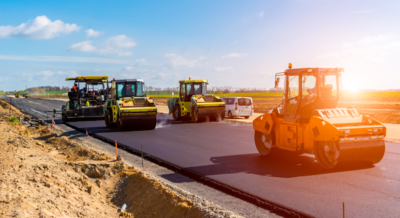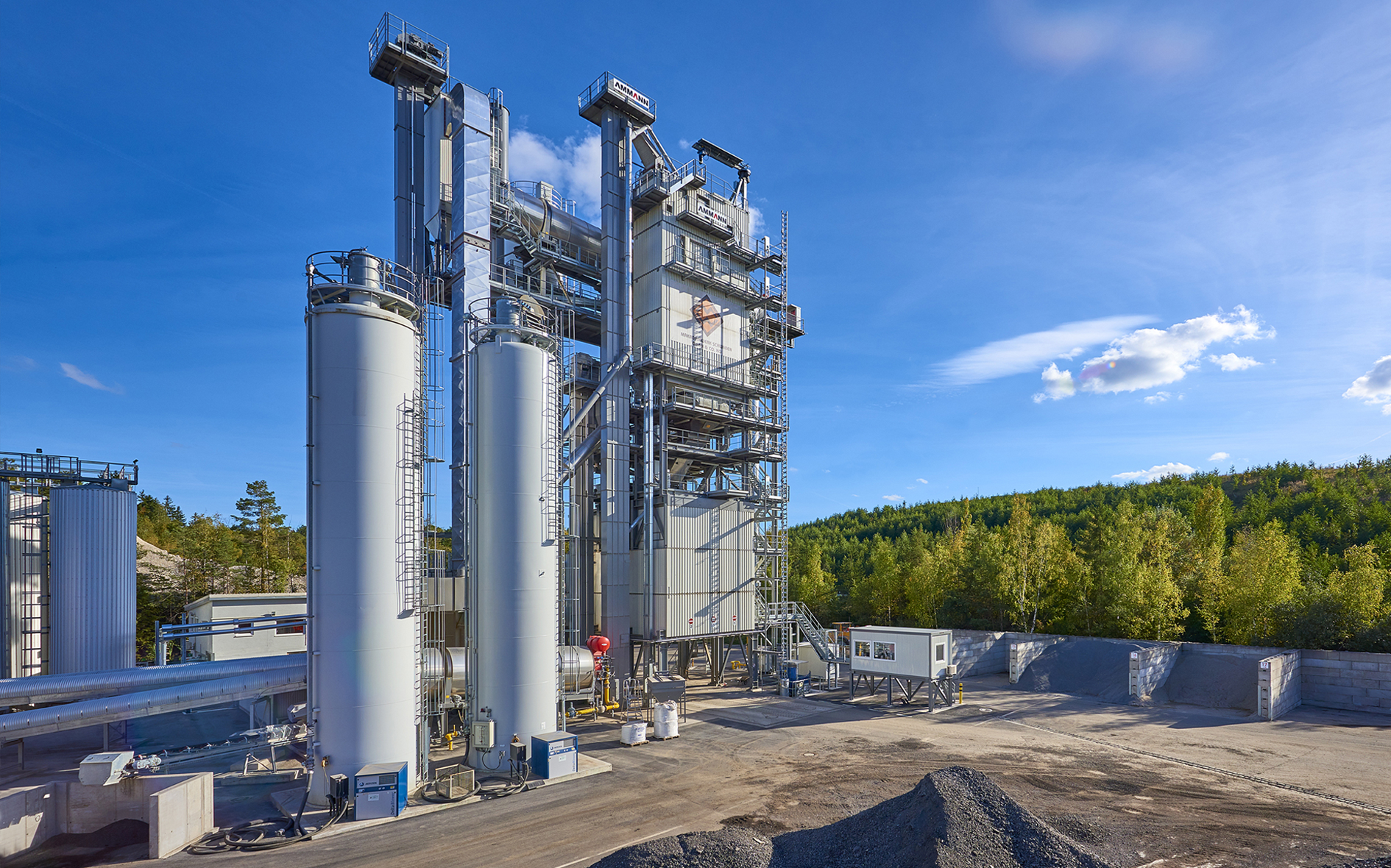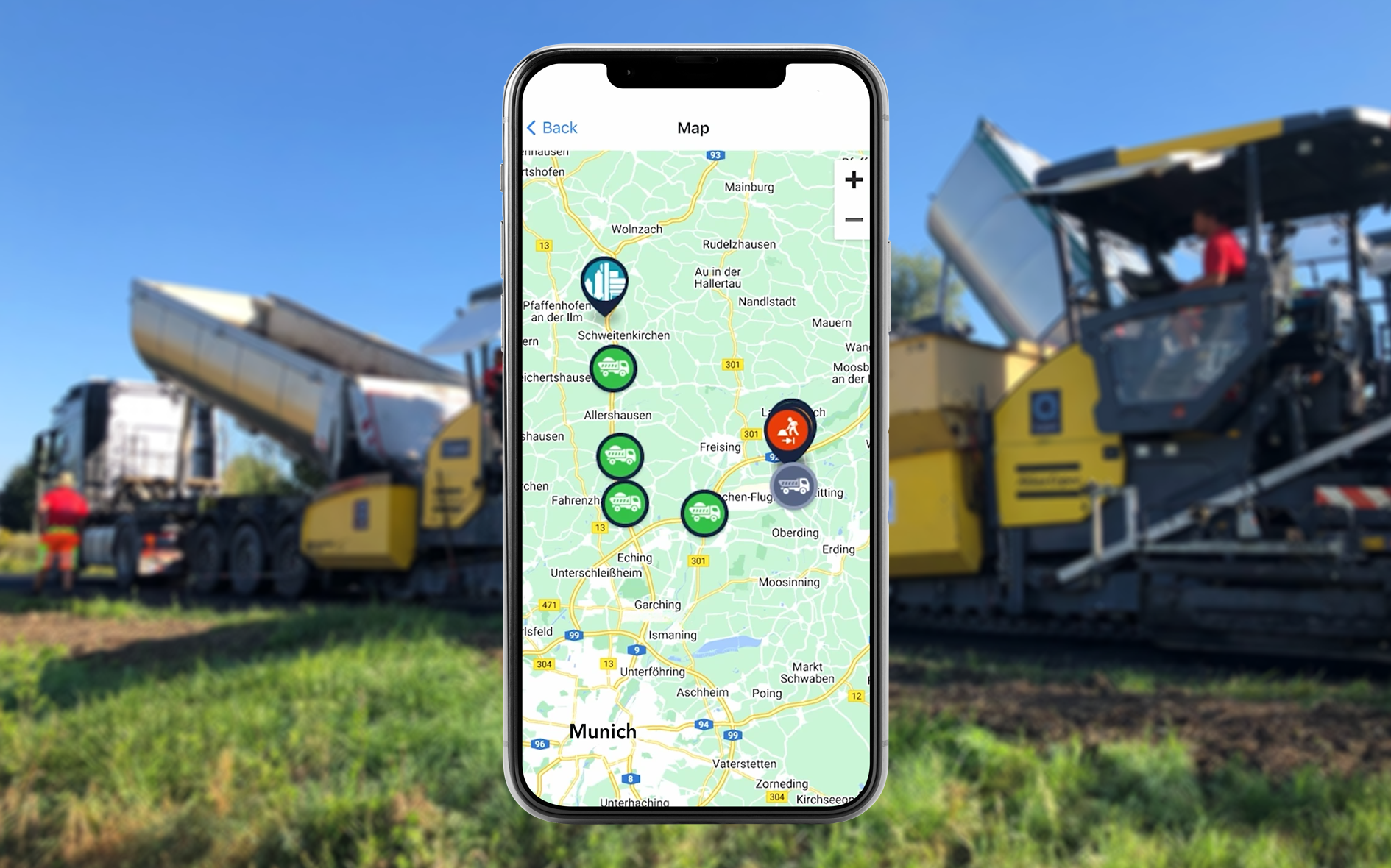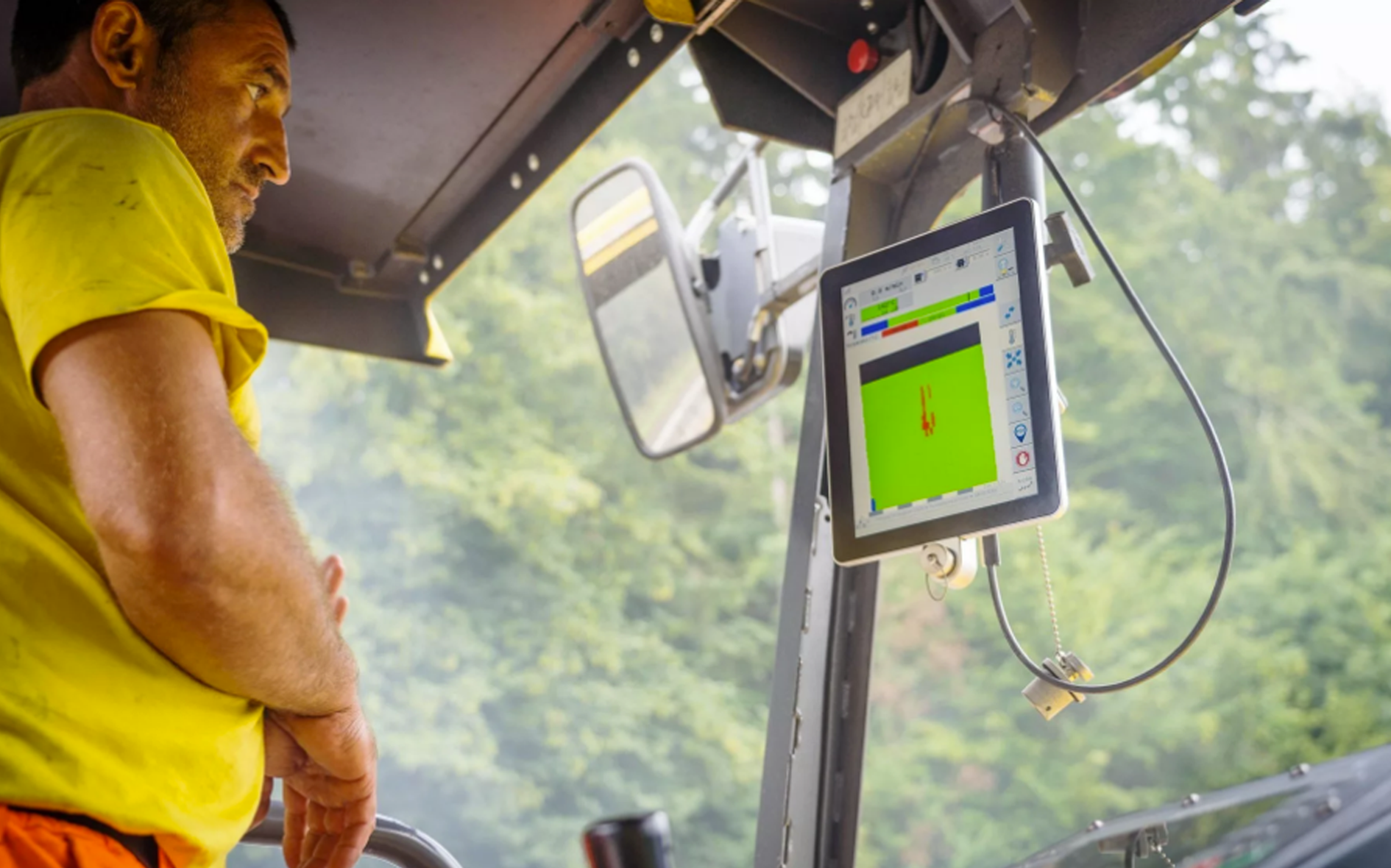We develop solutions for modern road construction that combine ecological responsibility with technical efficiency. Asphalt is at the heart of sustainable mobility, a proven construction material whose full potential is unlocked through innovation and circular economy practices.
Our sustainability strategy is guided by clear objectives: reducing production errors, ensuring seamless circular documentation, and extending the service life of roads. At the same time, we focus on reducing emissions and optimizing transport to further minimize our environmental footprint. Through long-term planning and well-considered measures, we are shaping the road construction of the future - sustainable, efficient, and resilient.

Incorrect deliveries avoided through better planning.

Create automatic documentation for the circular economy.

Shorten construction times to boost efficiency.

Increase the lifespan and quality of roads.

Minimize emissions to reduce environmental impact.

Reduce transport effort to conserve resources.
Low-Temperature Asphalt
The use of low-temperature asphalt leads to significant CO₂ savings. Digital solutions play a key role in supporting and optimizing the construction process. Cloud-based platforms and mobile apps ensure smooth on-site processes, crucial when working with low-temperature asphalt. Logistics are optimized through real-time transmission of arrival times and loading temperatures. This allows the asphalt to be laid efficiently and without delays, even at lower temperatures.


Production Optimization
By integrating digital solutions into production facilities, energy consumption can be tracked across the entire production chain, compared via dashboards, and systematically optimized. Transparent real-time data visualization reveals inefficiencies and enables data-driven process control. This allows for a sustainable reduction in energy use, lower emissions, and improved resource efficiency. Production optimization thus becomes an effective lever for greater sustainability in asphalt production.
Digital Logistics Planning
The efficiency and environmental impact of a road construction project are largely determined during the planning phase. Digital logistics planning using real-time data makes construction processes more precise, reduces waiting times, cuts emissions, and lowers costs. Connected systems enable optimal control of material flows, facilitate just-in-time deliveries, and ensure continuous paving while identifying bottlenecks early on. In this way, intelligent logistics make a significant contribution to resource-efficient and future-ready infrastructure.


Smart Machinery
Precise temperature and compaction monitoring ensure optimal asphalt installation. Compaction takes place only where it is needed, avoiding unnecessary passes and saving both time and fuel. Achieving the ideal compaction and laying asphalt at the right temperature results in longer-lasting roads, ultimately reducing the need for repairs and conserving resources. This lowers CO₂ emissions on construction sites and protects the environment - a sustainable contribution to a greener future.